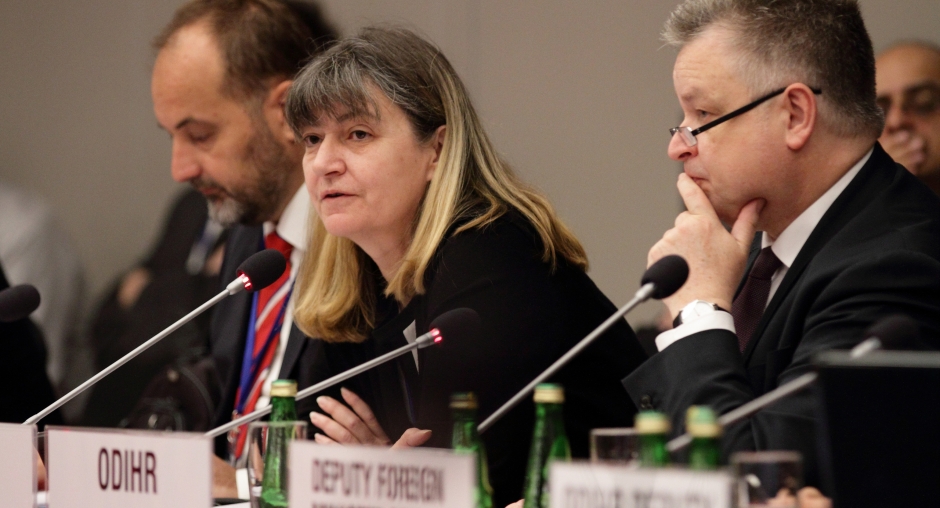



| Monday, 01 June 2015. | |
| National human rights institutions should support each other across borders, particularly in crisis situations, say participants at OSCE Seminar | |
| + larger fontnormal font- Smaller font |
 More than 100 representatives of governments, international organizations and civil society met to discuss the role of national human rights institutions in promoting and protecting individual human rights at the three-day OSCE Human Dimension Seminar, organized by the OSCE Office for Democratic Institutions and Human Rights (ODIHR) in co-operation with the 2015 Serbian Chairmanship of the OSCE. More than 100 representatives of governments, international organizations and civil society met to discuss the role of national human rights institutions in promoting and protecting individual human rights at the three-day OSCE Human Dimension Seminar, organized by the OSCE Office for Democratic Institutions and Human Rights (ODIHR) in co-operation with the 2015 Serbian Chairmanship of the OSCE.Michael Georg Link, ODIHR Director, said that the contacts and co-operation made possible by such events are central to the effectiveness of the institutions, such as ombudsperson's offices, established by OSCE participating States to help safeguard human rights and freedoms. "Whenever necessary, national human rights institutions ought to be uncomfortable partners to their governments," the ODIHR Director said. "Given this natural domestic tension, it is even more important that they support each other across borders. The co-operation of Ms. Ella Pamfilova, the Commissioner for Human Rights in the Russian Federation, and Ms. Valeriya Lutkovska, the Ukrainian Parliament Commissioner for Human Rights, is an excellent example. It is admirable how outspoken both are, given the difficult climate under which they operate. The statement of Ella Pamfilova on the recently adopted law on the so-called "undesirable organizations" is a good example." Ambassador Sanja Milinković, Deputy Chairperson of the OSCE Permanent Council and Deputy Permanent Representative of Serbia to the OSCE, stressed that the role of participating States goes beyond just setting up NHRIs and defining their roles. "There is a responsibility on the part of governments not just to establish national human rights institutions with a strong legal basis, but also to provide them with adequate financial and human resources," Milinković said. "Then there is a resonsibility to follow up on the concerns these institutions raise and the recommendations they make." In the keynote address, Saša Janković, Serbia's Protector of Citizens, the country's ombudsperson, told participants that the role of NHRIs is particularly important in crisis situations, as legislation in OSCE participating States provides for the derogation of certain human rights and freedoms at such times. "Crises of any kind must not be allowed to limit the capability of NHRIs to fulfil their mandates. In those times, the respect of human rights has to be under special scrutiny," Janković said. "NHRIs should serve as the most obvious partners in ensuring that only absolutely necessary derogating measures are applied. Therefore, crises should be reasons for the inclusion, not the exclusion of NHRI's," he added. Photo by:OSCE/Piotr Markowski |